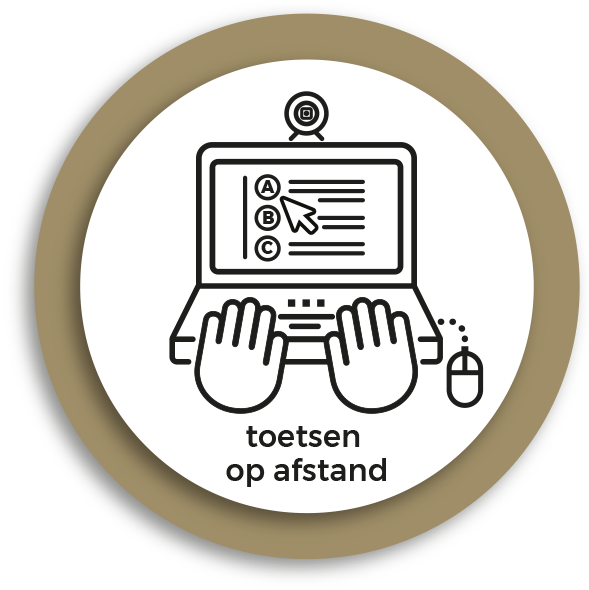Description
Often, you not only want to test knowledge, but its application too. This can be done in online exams, for example in the form of open-ended questions. Other options are open book exams or case study exams. Although these are …
How
Depending on the time and manpower available, it may still be too labour-intensive to only set open-ended questions at this scale.
Assessing presentations, projects or products can be very time-consuming, and may therefore not seem to be an obvious choice. However, their assessment can be made easier by dividing the students into groups. Peer feedback can then be implemented in a formative setting, so that students assess each other’s work. It may also help to have students record their presentations, so that you can assess them at a more suitable time and location.
Recommended assessment methods
Tips
Set a suitable time limit: too much time increases the risk of cheating, but too little time causes stress and reduces the validity of the exam results. See Van Berkel (1999) (in Dutch) for estimates of the time needed for different types of questions.
Emphasize the student’s ethical responsibility not to cheat.
Ensure good communication with the students.
- Be transparent about the online assessment process, so that students know what to expect. Let them know for example which personal details will be needed and what they will be used for, and what they need to have with them (e.g. a student card, telephone or camera).
- If online proctoring will be used, be clear about what the students can expect and what the rules are. Transparency about how the online proctoring will be implemented is essential. For more information, see the SURF online proctoring report: Surveilleren op afstand.
- You also need to let the students know about any technical requirements. At a minimum, students will need a stable internet connection. It is important to let the students know of any specific computer hardware requirements for the assessment software and to provide alternatives if this is not available.
Not every student has suitable living conditions with a quiet room to take an exam in. Where possible, offer an alternative, such as a room on campus that students can use.

